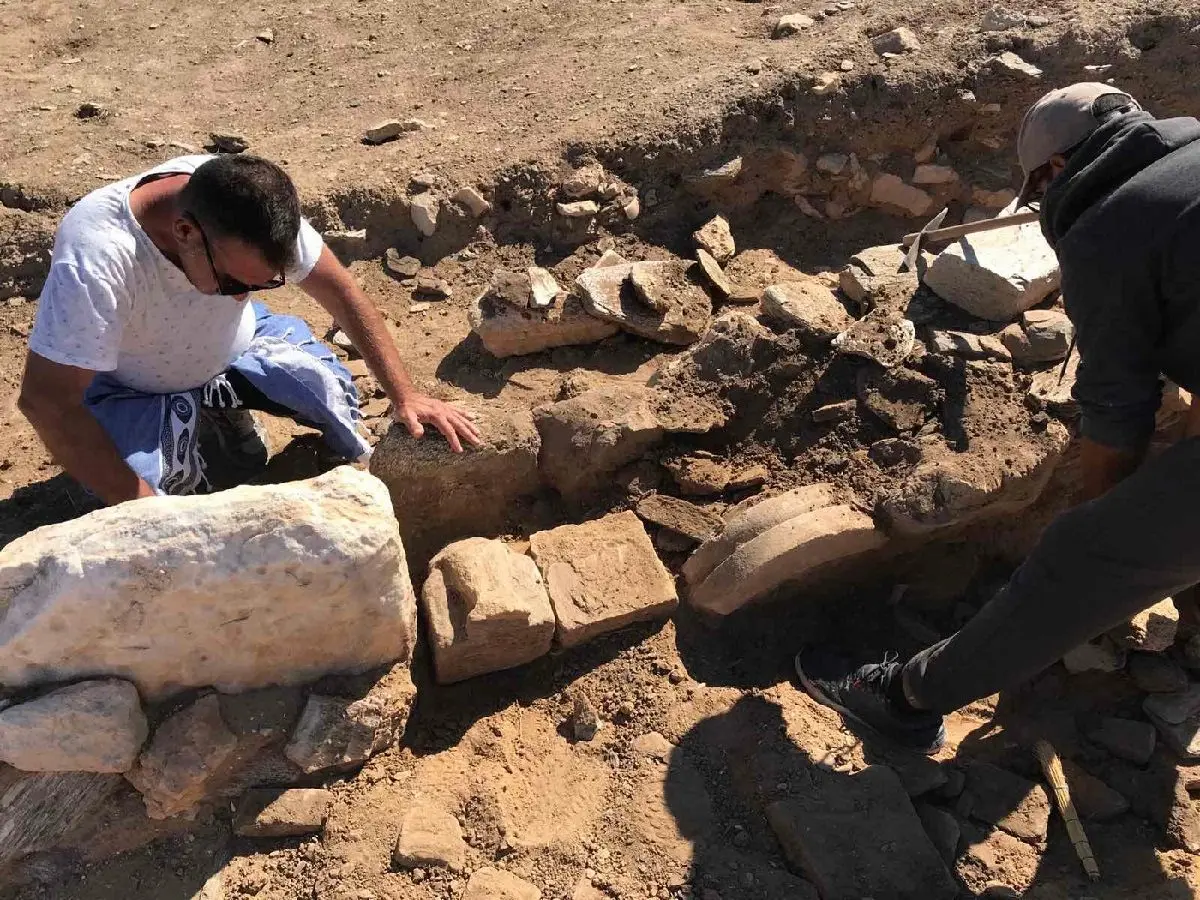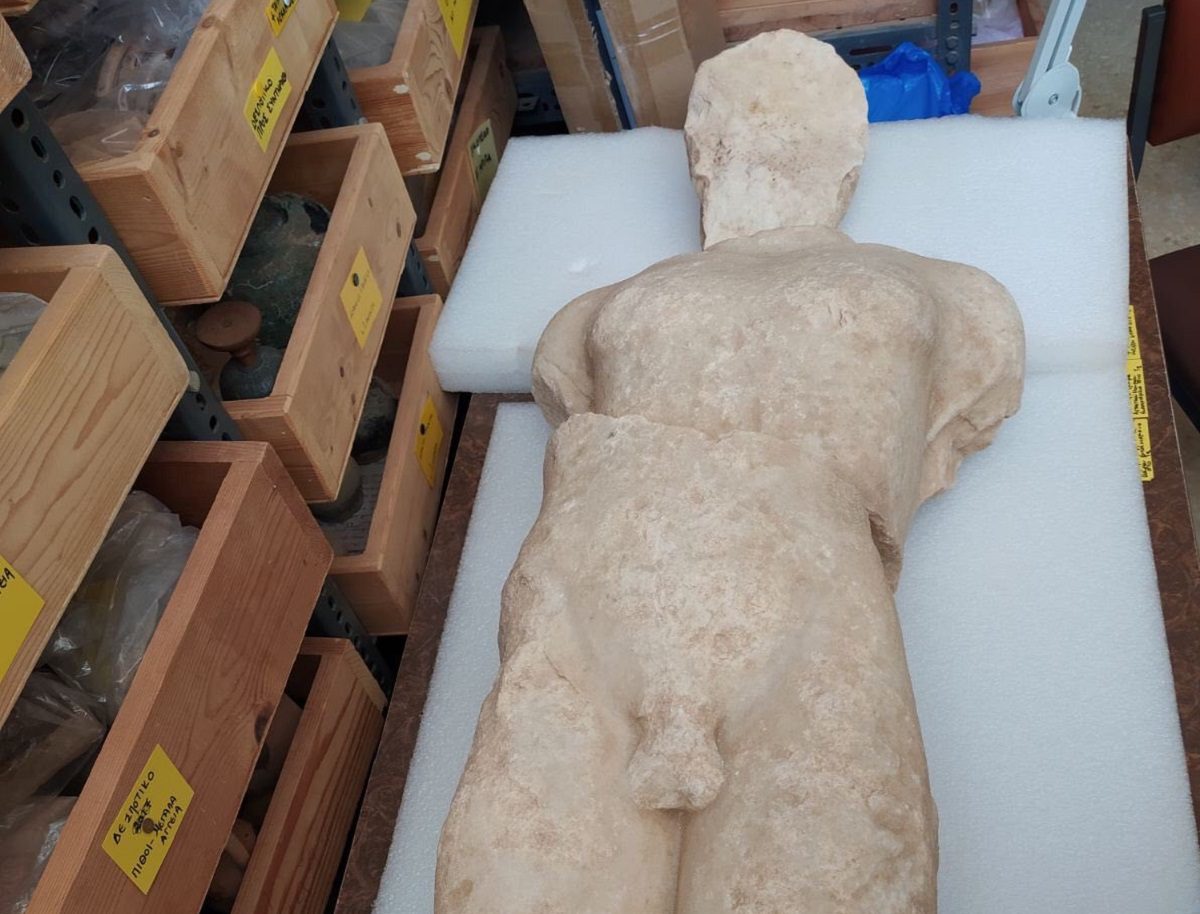Archaeologists have uncovered a naked kouros statue during excavations of an Ancient Greek sanctuary dedicated to Apollo.
Despotiko is a small, uninhabited Greek island in the Cyclades island group in the Aegean Sea. Excavations in the northwest part of the island have previously found a late Archaic sanctuary in dedication to Apollo, one of the Olympian deities in classical Greek and Roman mythology.
The sanctuary was rebuilt several times during the Classical and Hellenistic periods and contains an altar where in 2015, archaeologists found pottery fragments etched with inscriptions bearing the name of Apollo.
According to a press release by the Greek Ministry of Culture, recent excavations have led to the discovery of a kouros statue, a free-standing sculpture that depicts a nude male youth commonly found in other Apollo sanctuaries.

Kouros in Ancient Greek refers to a “youth, boy, especially of noble rank”. Upon reaching adolescence, a young individual, now resembling a mature Kouros, could gain entry into the initiation celebration of the fraternity, joining the ranks of adult men. Apellaios was the month of these rites, and Apollo (Apellon) was the “megistos kouros” (the greatest Kouros).
Kouros statues had several functions. Some could be a depiction of Apollo himself, while others may have been used as commemorative tombstones or offerings for the gods.
The statue found at Despotiko dates from around 480 BC and was carved from marble originating from the larger island of Paros to the east. Also found during this seasons excavations are 88 fragments of marble kouroi, 40 marble bases, and numerous ceramics from the archaic and classical period such as vases, basins, bottles, lamps, pots, and amphorae.
Header Image Credit : Greek Ministry of Education





